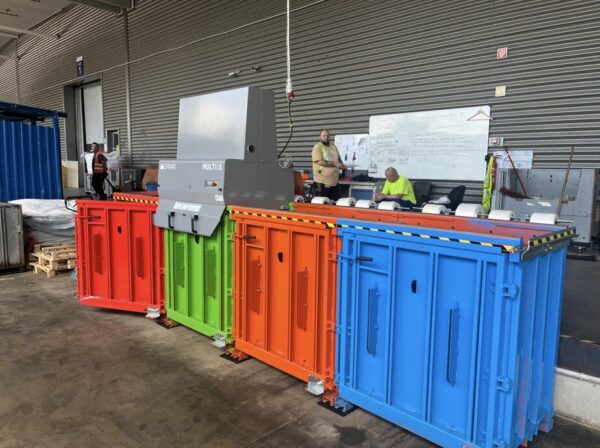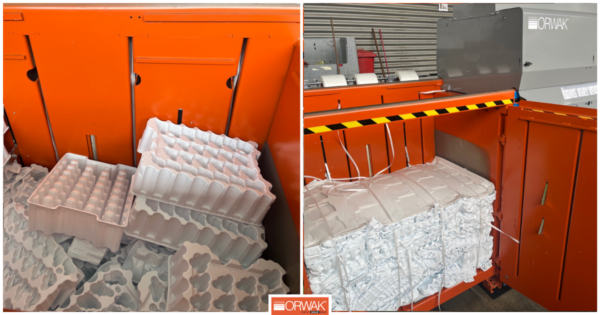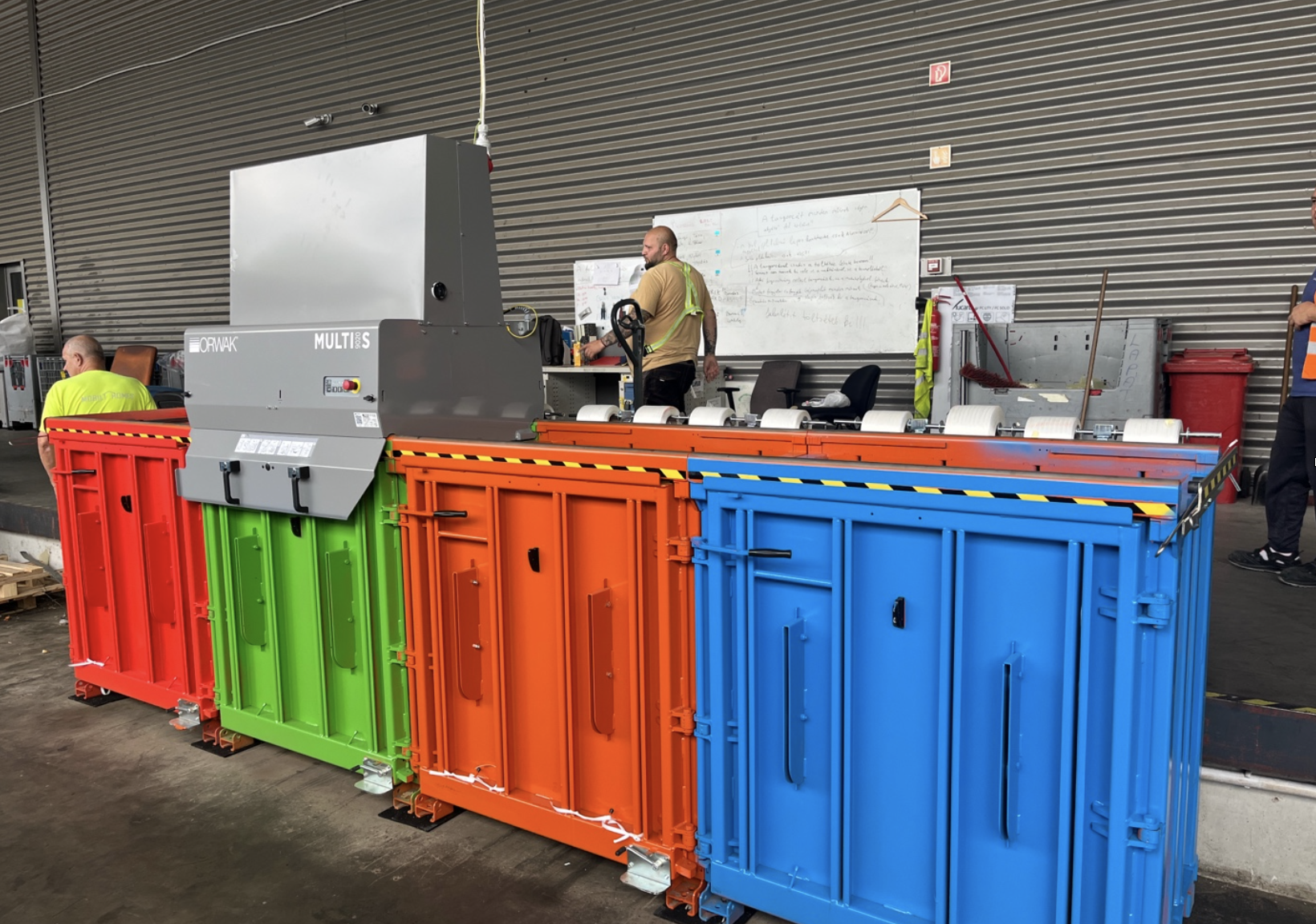Orwak Hungary recently delivered a special edition of the Orwak Multi-chamber baler 9020S. The customer is an automotive parts manufacturer that handles large amounts of packaging waste and other materials from production. This 4-chamber color-coded baler promotes sorting at source, improves the handling process significantly and aligns with the new waste management system, MOHU, in Hungary.
Sorting at source for more profitable waste management
The amount and diversity of waste generated during industrial production poses a serious challenge for companies. Cardboard, plastic foil and other waste materials – if these are not sorted and handled properly at the company’s premises, the value of the entire material flow devaluates. The efficiency of waste management deteriorates and costs soar: waste transportation and storage become more expensive, it requires more labor, and the overall operating costs increase. An Orwak multi-chamber baler, which can easily be extended with additional chambers, one for each waste fraction, can solve that by forming a mini recycling station. The sorting concept was taken one step further at a customer site in Hungary, where a color-coded baler was installed.

Unique color-coded system and baling: efficient selective waste management
The new era of waste management in Hungary was brought about by the so called “MOHU waste management system”, which is based on the principles of the circular economy. For companies, this means that waste must be sorted as accurately as possible in clean fractions to increase the overall recycling rate.
One of Orwak Hungary’s customers, an automotive parts manufacturer, handles large amounts of waste every day: cardboard boxes, foil, plastic containers and other materials. Waste occupied a considerable area on site, the mixing of materials impaired recyclability, and the transportation costs were also substantial. The solution was to install a 4-chamber color-coded baler.
Orwak Hungary delivered a baler, where each chamber is colored differently. The colors are strong identification markers, and it is immediately clear to the workers which type of waste goes in what chamber. The color-coded system not only improves the accuracy but also speeds up the sorting process.
The essence of the machine’s operation is baling, to compact separately sorted materials into dense bales, which can be easily stored, transported and sold directly to recycling companies. This not only saves the company space and costs, but it also increases the market value of the recyclables.

Aligned with MOHU’s waste management goals
MOHU’s goal is for Hungary to move to the forefront of the circular economy, but it requires that the manufacturing industries do their part and deliver sorted recyclables. The 4-chamber Orwak baler supports exactly this:
- Cardboard, foil and plastic containers are baled separately
- The high-density, standard-sized bales can be easily moved with a forklift, which simplifies storage, in-house movement and transport of waste.
- Increased recycling rate
- The material streams fit into the system operated by MOHU.
Switching to baling means an immediate leap in efficiency, less error potential, a tidier working environment and cost savings. After sorting different types of waste, the color-coded 4-chamber baler produces uniform bales, which results in a 70–90 % volume reduction. This means at least 50 % less transportation and 1–3 hours of freed up working time per day.
Waste sorting is not a burden but a business advantage
Waste sorting and baling is not an administrative burden, but a business advantage. Anyone who is able to create a transparent, cost-effective and environmentally friendly system will save time, money and space in the long run, while also meeting the expectations of MOHU.
With the color-coded system of the Orwak 4-chamber baler, selective waste collection and baling have become simpler, more efficient and more spectacular. A smart equation: a modern machine + a smart process = less transport, lower costs, higher material value. This is the business language of sustainable operations.






